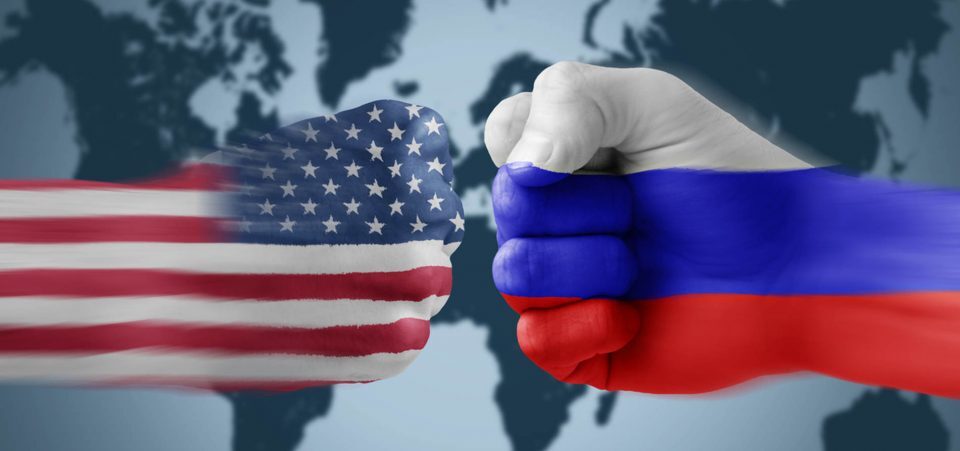 News Staff
News Staff![]() -
February 20, 2023 -
Arts & Culture -
WW#
-
2.6K views -
0 Comments -
0 Likes -
0 Reviews
-
February 20, 2023 -
Arts & Culture -
WW#
-
2.6K views -
0 Comments -
0 Likes -
0 Reviews

DLNews JTFMax:
The Ukraine War and Russia's total land grab in Ukraine have left Western Europe with an unsettling sense of threat. The risk hasn't been this high since the Cold War.
A resurgent Russia and an assertive China have the potential to break Europe's peace order. The result would be a global conflict that may become catastrophic.
Ukraine
Ukraine, one of the world's leading gas producers, has been cut off by Russia for a few months. The cutoff has affected the entire EU, which imports 56 percent of its oil and gas from Russia.
The Ukrainian government made the mistake of holding a referendum on Crimea, which Moscow then annexed. This was an extremely unwise move by the government in Kyiv, as the referendum had no legal standing and was a clear violation of the country's Constitution.
Putin was unhappy with this decision, and it was only a matter of time before he used his arsenal to get back at the Ukrainians. The Russians had a lot of firepower in place to push westward into Poland and Germany; if this happened, it would be a disaster for European states.
Another massive blow to the resurgence of the former Soviet Union was China's rapid rise. The Chinese military was one of the world's most powerful, and it could strike without warning, which is something Europe will never forget.
A more dictatorial Russia is on the horizon, leading to exciting world events. The Bible is warning us that a more authoritarian world power will be able to challenge the EU for its number one spot. It can do so because it has the right to attack without notice.
Russia
As the conflict in Ukraine drags on, the global community has been forced to ponder its more significant implications. It's been tempting to draw analogies, both historical and contemporary.
In 2014, then-Ukrainian President Yanukovych broke from European Union, NATO and other Western governments to embrace a closer relationship with Moscow. Putin saw this as a way to expand his authoritarian influence.
The Ukrainian people responded with massive protests, and eventually, Yanukovych was removed from office. This prompted Russian President Vladimir Putin to send his forces to Ukraine, a longtime rival, to try and seize control of the country.
Russia's invasion of Ukraine has raised concerns about the escalation of conflict and its emergence as a new world order. As a result, the United Nations has passed two resolutions calling on Russia to withdraw its troops, with 141 countries voting in favor.
While China has not been directly involved in the war, it has a close and vital economic and military relationship with Ukraine. Beijing's fundamental foreign policy principles are non-interference in other countries affairs and respect for territorial integrity.
As a result, Russia's invasion of Ukraine has been a significant challenge for China. It contradicts China's core foreign policy principles and damages its national interests in Ukraine.
However, China's response to the Russian invasion has been a balancing act. It does not want to undercut Russia's power, nor does it wish to provoke the West. Instead, Beijing is wary of the international backlash and crippling sanctions that Russia's aggressive action could attract.
China
A survey released by Ipsos suggests that more than a third of the world’s population believes a global war on the scale of WWI and WWII could break out between superpowers in the next few years. This is a frightening thought, especially given the recent history of conflict between Russia and Ukraine.
One of the most threatening factors in this scenario is China, whose leaders have repeatedly threatened to invade Taiwan, even though the island has reliable military equipment and political support from America, among other nations. Moreover, its military has bolstered its claims to almost all of the South China Sea, where America and the Philippines dispute the sovereignty of these waters.
The two countries have been at odds over territorial rights in the region for decades. But with China's burgeoning economic and military power, it has become increasingly hard to ignore.
In addition, Xi Jinping’s “One Belt, One Road” initiative has put China in the position to control all of Asia and the Middle East--a region that holds 55 percent of the planet’s wealth and 70 percent of the world’s population!
The Chinese juggernaut is a force to be reckoned with, and the world needs to watch it closely. It has cultivated an insidious influence in the globe and is on track to wreak havoc shortly.
Taiwan
The next major global military conflict could be World War 3. Superpowers like the US, China, Russia, and India would fight it. It would also involve civilians, as seen in Ukraine.
The US has taken extraordinary care to avoid escalation in Ukraine, but the risks are not limited to Washington. Both Kyiv and Moscow are growing nervous over their security.
Taiwan is a tiny island off the coast of China that has been an independent nation for over 100 years thanks to American support, military equipment and political promises. But the Chinese government has been actively seeking to assimilate the island into its sphere of influence.
During the presidency of Ma Ying-jeou, he prioritized improving Taiwan's relationship with China by making some bold moves. However, many people in Taiwan were displeased with these efforts, and the result is that China has a stronger foothold than ever before.
Taiwan has a new president whose views are quite different from Ma's. Tsai Ing-wen's landslide win in January 2016 signals that the people of Taiwan are sick and tired of submitting to China.
A great power war wouldn't just be on land or in the air — it would involve high-tech and cyber warfare. It would be a whole new way to fight and could feature the latest weaponry, like AI battle management systems and autonomous robotics. It also would involve a much more comprehensive range of civilian players, from tech geeks in Silicon Valley to Anonymous hacktivist groups.
North Korea
The United Nations Secretary-General warned that World War 3 could break out in the making over Ukraine. The crisis in Eastern Ukraine, he said, has heightened global tensions. Putin is fanning the flames of conflict.
Russia's annexation of two disputed regions in eastern Ukraine blatantly violates international law, and the UN Security Council is unlikely to approve it. The United States and other NATO allies, including France and Canada, have also provided military assistance to the Ukraine government.
North Korea is a significant contributor to the ongoing conflict in Ukraine. It is a major supplier of arms and military equipment to the Donetsk and Luhansk People's Republics, which have been fighting in the country's east for several months.
In addition, it has armed and supported the forces of Ethiopia and Eritrea in their efforts to fight off Somali aggression. This has helped to strengthen the Kim regime’s credibility within the Horn of Africa.
Even though comprehensive UN sanctions have made it more difficult for African countries to purchase weapons from Pyongyang, the Horn of Africa remains a viable market for North Korean exports because of its weak law enforcement and military capacity.
The United States has a stake in convincing the government of Africa's top ally, Ethiopia, in complying with UN sanctions against North Korea. The costs of failing to do so will likely be a factor in Ethiopia's decision to limit its ties with Pyongyang.
Africa
If the war in Ukraine is any indication, World War 3 could be on the horizon. There are several ways that the various superpowers are preparing for potential conflict, and there are several possible outcomes.
The first and most obvious way that the world's most powerful countries are trying to redraw their maps is by deploying new weapons, such as nuclear missiles and bombers. This is the hottest part of the world right now, and the last thing that any nation wants is to find itself on the wrong side of a nuclear holocaust.
Another way that the world's most powerful countries and their allies are also preparing for potential conflict is through military drills such as the dreaded sea exercises, where naval vessels from multiple nations are positioned strategically to test each other's abilities. The most exciting aspect of these simulated battles is that it helps the superpowers understand what their enemies are up to, says James Cross, director of international security studies at Yale University.
Finally, the world's most powerful governments are extending their tentacles into the developing world by building infrastructure to support trade and commerce across the continent. In particular, China attempts to dominate Africa's top trade lane by building highways and railways to connect every African country except Swaziland. In the process, China may be able to create a pan-African nexus of trade and commerce that will rival that of the United States.

Desert Local News is an invitation-only, members-based publication built on fact-checked, non-biased journalism.
All articles are publicly visible and free to read, but participation is reserved for members—comments and discussion require an invitation to join.
We cover local, state, and world news with clarity and context, free from political agendas, outrage, or misinformation.